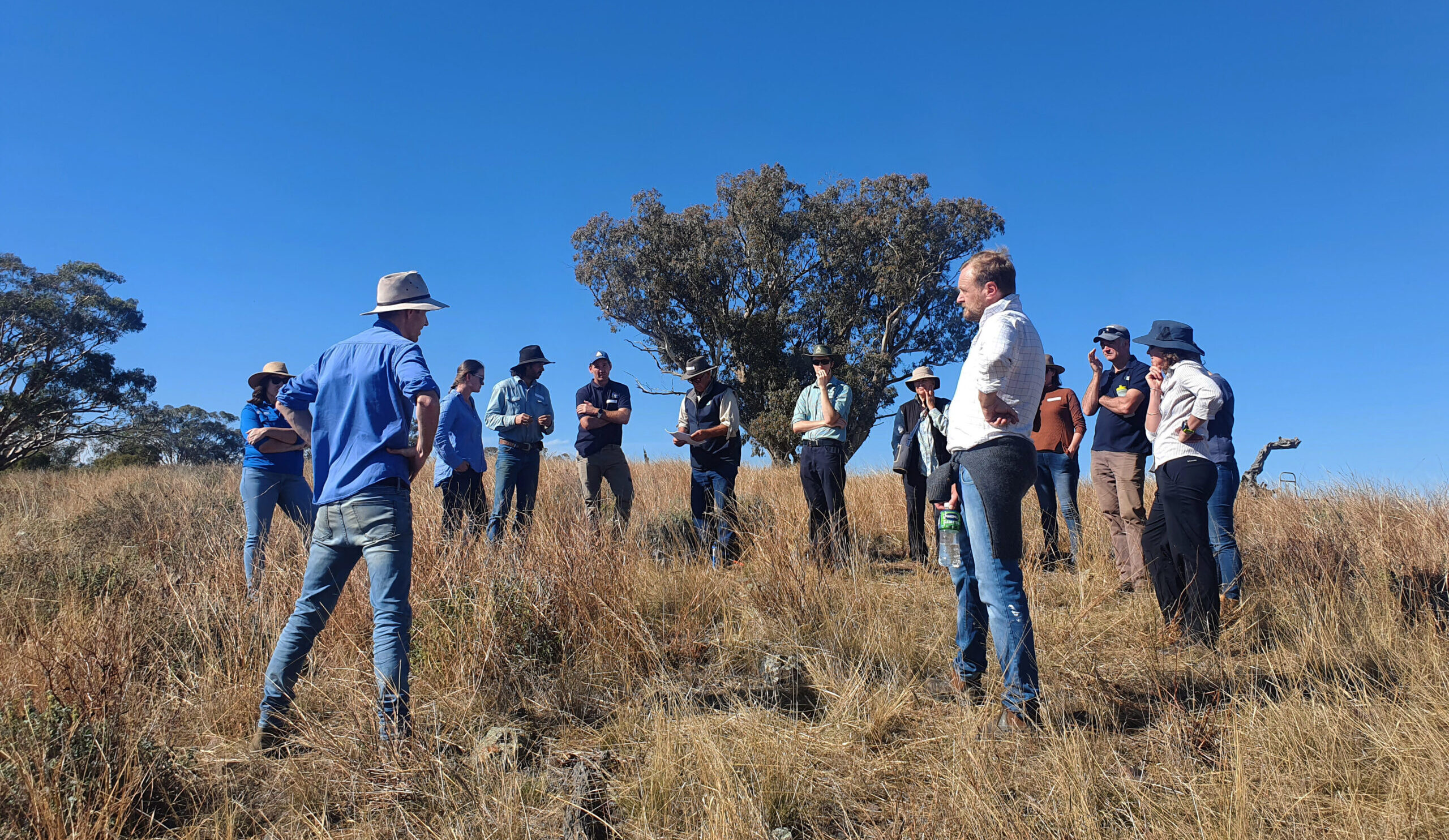
POLICY BRIEF: Supporting Farmer Mental Health and Environmental Sustainability in Agriculture
A policy brief from the Australian National University’s Sustainable Farms initiative.
Summary
Australian agriculture is currently at a tipping point between the risks and impacts of climate change and biodiversity loss, and the potential benefits for farmers of market-based mechanisms for addressing these threats. Research from the Sustainable Farms initiative highlights both the importance and complexity of farmers engaging in natural resource management (NRM) practices on their mental health. While sustainable land management can provide social and mental health benefits through increased connectedness and engagement with nature, the potential benefits are closely linked with individual circumstances, attitudes to farming systems and the overall health of the farming enterprise. Financial stress is a major cause of poor mental health for farmers, meaning that any efforts to improve environmental conditions must minimise financial risk. With a holistic approach that considers mental health, social connectedness and whole-of-farm management strategies, NRM programs and knowledge sharing opportunities can play an important role in educating and supporting farmers to undertake successful environmental programs.
Key Takeaways
|
Challenges & Opportunities
A significant body of research points to the elevated risk of mental health challenges among farmers compared to the general population (Batterham et al. 2022, Brown et al. 2022). Reasons for the elevated risk include financial pressures, climate variability, social isolation, and the demanding nature of agricultural work.
There is mixed evidence about the effectiveness of NRM practices on farmer mental health (Batterham et al. 2022). Studies suggest impacts can vary based on the farmer’s personal values, motivations, and perceptions of the practices in the context of farm management strategies.
A common finding is that financial stress is a major cause of poor mental health in farming communities. Programs aimed at encouraging farmers to adopt NRM practices must acknowledge and address this and recognise that conservation efforts perceived as a financial burden could unintentionally exacerbate mental health strains.
While the link between engaging in NRM practices and improved well-being is not always direct, evidence suggests several ways NRM practices can positively impact farmer mental health.
Participating in collaborative NRM programs and farmer-led initiatives can foster social connections, reducing feelings of isolation and creating a sense of belonging within farming communities.
Adopting NRM practices can empower farmers, providing a sense of agency in responding to environmental challenges and contributing to the long-term health of their land.
Emerging evidence suggests that adopting a whole-systems perspective on farm management, such as through the application of socio-ecological principles (SES), might be more effective in supporting long-term farmer well-being compared to focusing solely on individual NRM practices.
Policy Recommendations
To effectively support farmer mental health while advancing the adoption of sustainable agricultural practices, a varied approach is required:
Integrate mental health support into NRM programs through promoting social connectedness and knowledge sharing
Natural Resource Management (NRM) programs should be designed to prioritise farmer mental health by fostering social connection and facilitating knowledge exchange. This can be achieved by supporting existing farmer-led networks, cooperatives, and community-based NRM initiatives such as Landcare groups to provide opportunities for peer-to-peer learning, mutual support, and designing programs that acknowledge the social aspects of NRM practices. These programs should incorporate mental health literacy training into agricultural extension activities. This approach recognises that strong social connections and shared learning experiences are essential for effective natural resource management and positive mental health outcomes in farming communities. As market-based schemes for nature repair emerge, governments must continue to support community led organisations.
Provide targeted financial incentives for NRM adoption
To support farmers in adopting Natural Resource Management (NRM) practices while mitigating financial stress, a comprehensive system of targeted financial incentives should be implemented. This system should include grants, subsidies, tax breaks, revenue contingent loans and facilitated market access specifically designed for approved NRM practices. This can help to offset upfront costs and potential short-term income reductions associated with transitioning to more sustainable farming methods. By alleviating financial burdens and demonstrating the economic viability of NRM practices, these incentives can significantly reduce anxiety among farmers and encourage broader adoption of sustainable farming methods.
Promote whole-of-farm management approaches and socio-ecological principles
To enhance both environmental sustainability and farmer well-being, policies to promote the uptake of environmental improvement projects should actively promote the adoption of whole-farm approaches and socio-ecological system (SES) principles. This can be achieved by providing comprehensive training and extension services that equip farmers with the knowledge and skills to implement SES principles. This includes understanding complex systems, adaptive management, and holistic decision-making. By fostering a holistic approach to farm management that considers ecological, financial and social factors, these policies can contribute to more resilient agricultural systems and improved farmer mental health.
More Information
Sustainable Farms Mental Health Research Report: www.sustainablefarms.org.au/resources/mental-health-research-report
Contact: Professor Philip Batterham, Australian National University, philip.batterham@anu.edu.au

